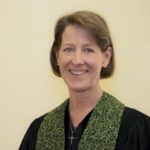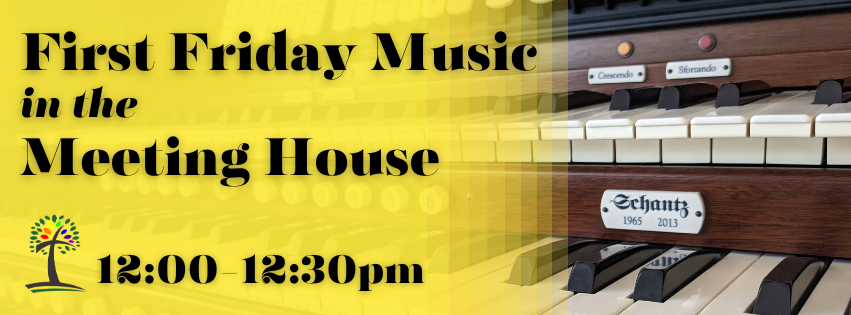
June 26, 2017
“All Who Believed were Together” Sermon for June 25, 2017
During the summer, I deviate from the Lectionary, focusing instead on parts of the bible that speak to the issues of today or those passages that are not included in the lectionary readings.
For the next ten weeks we will be exploring what it means to be the church in the 21st century.
We will look to the early church for models of discipleship and each week we will engage in dialogue about our own embodiment as the body of Christ.
For today’s reading, we turn to the Acts of the Apostles – the chronicle of the early church.
This passage follows the Pentecost story-when the Holy Spirit came upon the assembled crowd, and begins to paint the picture of the early church.
Hear now a reading from the Acts of the Apostles 2:
Here ends the reading of God’s holy word. May God add to our hearing and understanding, God’s blessing. Amen.
Please pray with me.
God of strength and courage, in Jesus Christ you set us free from sin and death, and call us to the risk of faith and service.
Give us grace to follow him who gave himself for others, that, by our service, we may find the life he came to bring.
May the words of my mouth and the meditation of my heart be acceptable to you, O Lord, my rock and my redeemer. Amen.
Sermon
“Do not remember the former things, or consider the things of old. I am about to do a new thing: Now it springs forth, do you not perceive it?”
These words of the prophet Isaiah set the tone for the annual meeting of the Connecticut, Rhode Island and Massachusetts conferences of the United Church of Christ last weekend.
The conferences, you see, are trying to do a new thing.
After years of deliberation, study and prayer the leaders have recommended that these three historical conferences explore new ways of being the church.
Two rich days of talks, music, worship and prayer led to a near consensus that this ‘new thing’ would be a good idea.
The June 17 votes, taken at the first-ever joint annual meeting of the three bodies in Hartford, Conn., mean that Conference leaders will now develop a formal proposal for a new Conference, comprising of 625 churches in southern New England, which will be brought before a second joint Annual Meeting a year from now in Springfield, Mass.
We will deliberate on this ourselves over the next year.
Reverend Dr. John Dorhauer, the President and General Minister of the United Church of Christ spoke beautifully about the importance of the church being focused on mission.
He recommended that ‘every decision made in the local church be filtered through the lens of mission.”
What we do is not nearly as important as why we do!
He asked, “What is the Holy Spirit calling your church to do in this time?”
After the vote Rev. Dorhauer said, “I am proud of you. Your ‘yes’ today matters, and your yes today casts a vision for the future that was not otherwise available to you. And, my covenant promise to you is that the entire denomination will walk side-by-side with you on whatever journey unfolds.”
Covenant promise.
This is what the United Church of Christ is based on.
Sixty years ago when the UCC was formed, it was covenant that cemented the commitment among four different denominations to form a new way of being the church.
For me, covenant means a commitment to care.
John Dorhauer described the work that the National setting does throughout the world, bringing food to the hungry, water to those who don’t have any, health care to impoverished people – wherever they are.
We could not do that alone; but we can do it well by being in covenant with the national church.
I will have an opportunity next week to represent the CT Conference at the gathering of the National church, Synod, in Baltimore.
For 5 days we will collectively discern the future of the United Church of Christ.
Reverend Kent Siladi, Connecticut Conference Minister closed his final remarks at the CT Conference by saying: “Let us together, as one, respond with the Gospel of Jesus Christ to face the challenges that lie ahead, Come, Holy Spirit, come.”
And so we call.
We call out to God, to help us discern what we might do in the world to embody God’s love.
Henri Nouwen instructs us:
How does the Spirit of God manifest itself through us?
Often we think that to witness means to speak up in defense of God.
This idea can make us very self-conscious.
We wonder where and how we can make God the topic of our conversations and how to convince our families, friends, neighbors, and colleagues of God’s presence in their lives.
But this explicit missionary endeavor often comes from an insecure heart and, therefore, easily creates divisions.
The way God’s Spirit manifests itself most convincingly is through its fruits: “love, joy, peace, patience, kindness, goodness, trustfulness, gentleness and self-control.”
These fruits speak for themselves.
It is therefore always better to raise the question “How can I grow in the Spirit?” than the question “How can I make others believe in the Spirit?”
These are the questions that I want to explore together this summer.
We know that the church has changed and will always be changing.
The church of Jesus Christ is adaptive – it changes with the environment and the culture.
Reading this morning from the Acts of the Apostles we see an illustration of the early church: “Day by day, as they spent much time together in the temple they broke bread at home and ate their food with glad and generous hearts.”
I’ve recently been reading about the history of Francis of Assisi.
Richard Rohr, a Franciscan theologian reminds us: We are already connected to everything—inherently, objectively, metaphysically, ontologically, and theologically. We don’t create the connection by going to church or reading the Bible, although we hopefully enliven the connection.”
Last week, in conversation with our church council I pointed out that the best way to embody our mission is to model it in our own lives.
Rather than restricting ourselves to ‘the golden rule’ of treating others as we want to be treated; I called for an expansion – Be the person that you want other to be.
The mystics have always proclaimed: You are what you are looking for!
St. Francis said, I am that which I am seeking.
My question to you today is how can we do this in our faith community?
How can we live out our call to represent God to the world?
QUESTIONS
- I am about to do a new thing: Now it springs forth, do you not perceive it?
- What is the Holy Spirit calling your church to do in this time?”
- How can I grow in the Spirit?”
- You are what you are looking for!
- I am that which I am seeking
Let us pray.
Gracious and holy God we come before you today with hearts attuned to your call. Teach us to live our lives in service to you. Help us to use the gifts you have given us: love, joy, peace, patience, kindness, goodness, trustfulness, gentleness and self-control to build a better world.
On this day we pray for all the people in the world who are subject to hate and violence. We lament the loss of human life for political gain. We yearn for a world where every person is honored and valued.
We yearn to live out your vision on earth as it is heaven.
Hear us, O God as we turn to you with prayers for those whom we love.
For those who are sick, we pray for healing.
For those who mourn we pray for comfort.
We pray for our leaders and our children that their decisions might bring peace to our world. We turn to you now in the sacred silence of this Meetinghouse with the prayers of our hearts. …
Jesus taught them to pray in these words:

